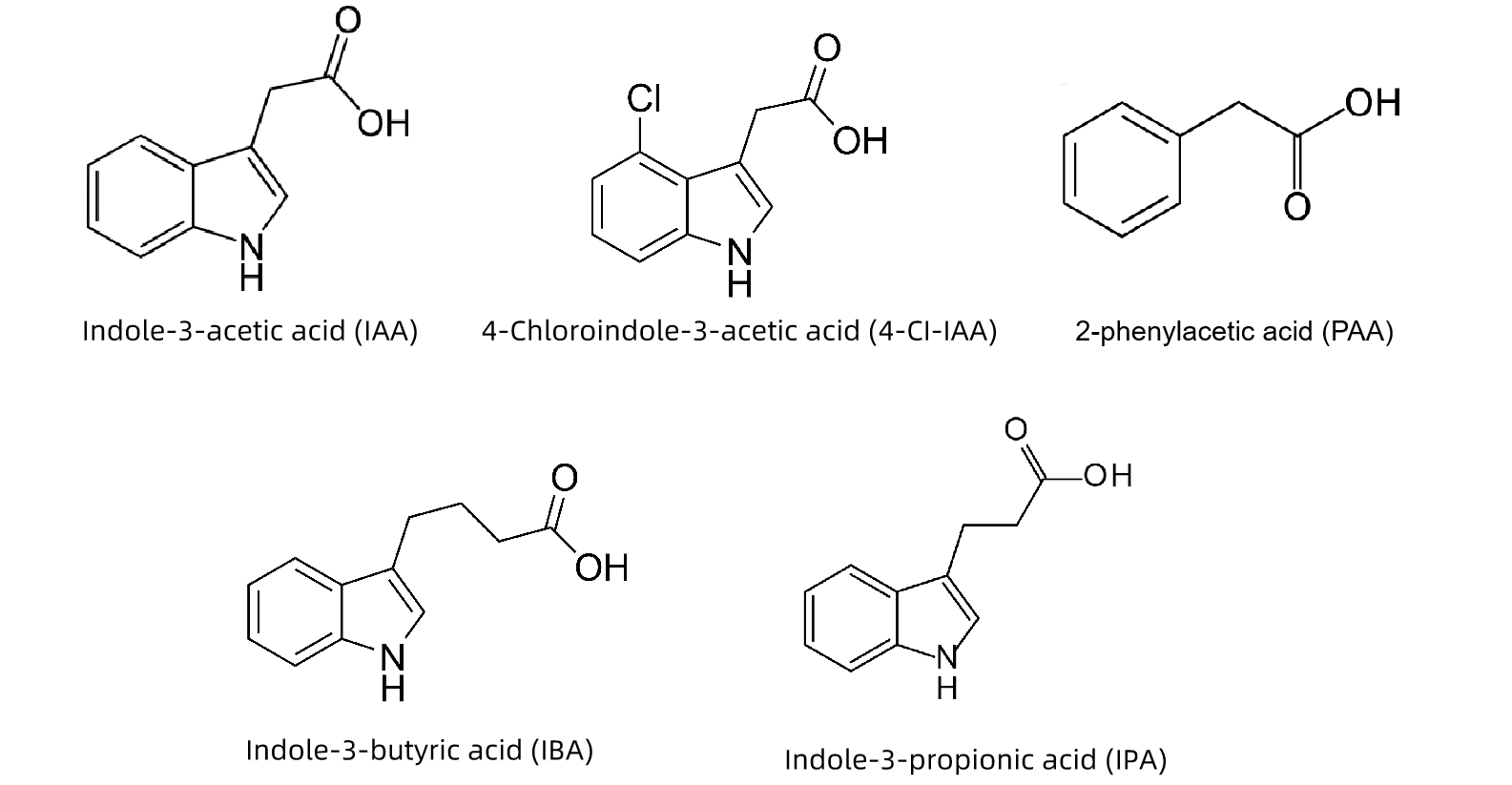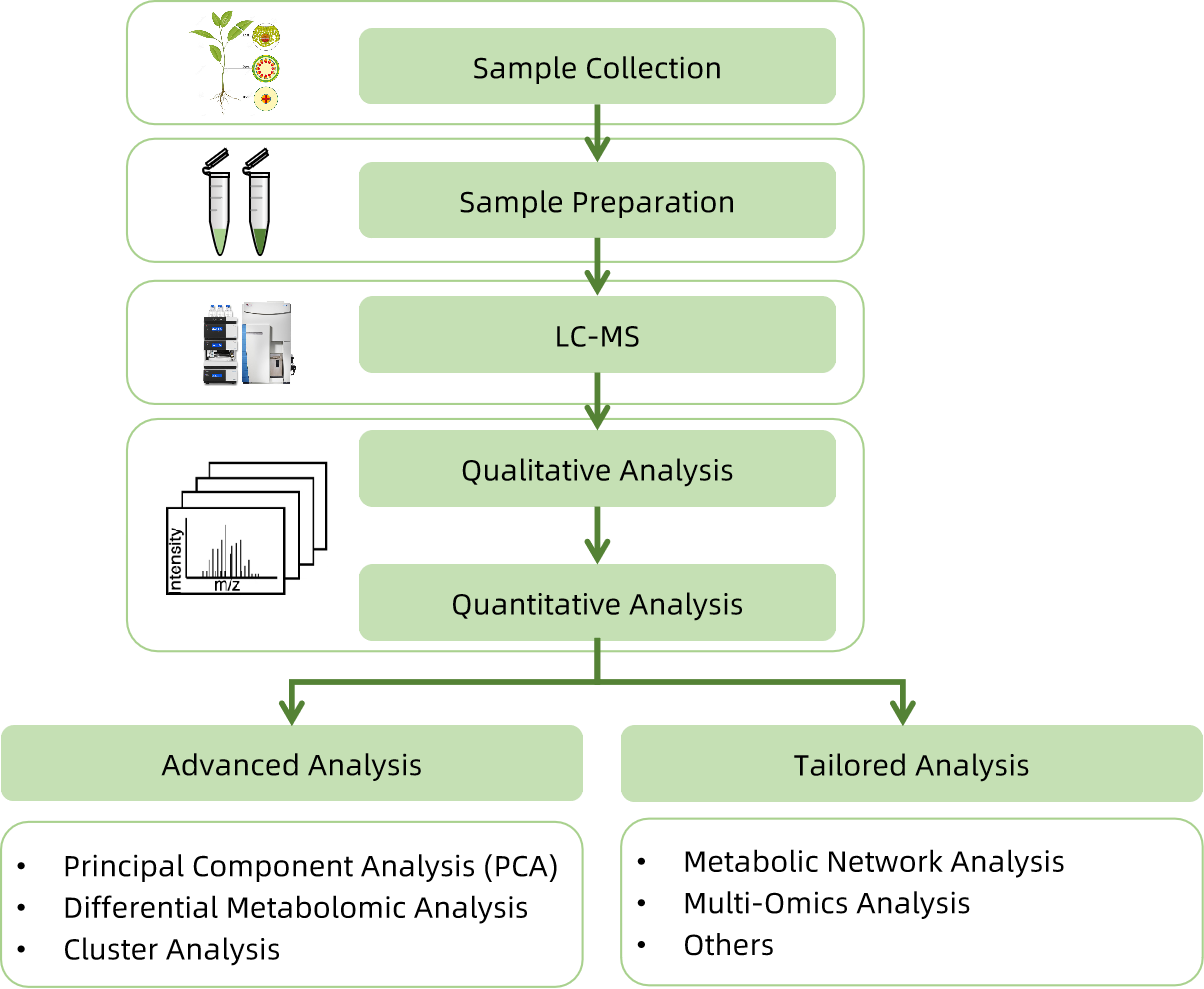Auxin Analysis Service
- Sample type: Fresh plant tissues, seeds
- Sample amount: ≥ 1 g
- Storage and Shipping: Samples should be stored at -80℃ and shipped with dry ice.
- Avoid repeated cycles of freezing and thawing
- More than 3 biological replicates should be prepared.
Auxins are a class of essential phytohormones that play a critical role in the regulation of plant growth and development. These small molecules, primarily indole-3-acetic acid (IAA), influence cell elongation, root formation, vascular differentiation, and responses to light and gravity. Structurally, auxins are characterized by an aromatic ring and a carboxylic acid group, which are key to their function in plant physiology. Besides IAA, there are several other naturally occurring and synthetic auxins, each contributing uniquely to various physiological processes.
The significance of auxins extends beyond basic plant growth. They are integral in modulating plant responses to biotic and abiotic stresses, thereby enhancing plant adaptability and resilience. Auxins are also crucial in agricultural practices, where they are used to improve crop yields, promote rooting in cuttings, and synchronize fruit set. In recent years, research on auxins has expanded to include their roles in gene expression, signal transduction pathways, and interactions with other hormones, making them a focal point in plant science and biotechnology.

Figure 1. The Structure of Native Auxin
Understanding auxin dynamics and their precise quantification in plant tissues is vital for advancing both fundamental plant biology and applied agricultural sciences. Accurate measurement of auxin levels provides insights into their physiological roles, aiding in the development of strategies to optimize plant growth and productivity.
Technical Principles
Our service is based on Liquid Chromatography-tandem Mass Spectrometry (LC-MS/MS), a powerful technology for the separation and quantification of small molecules. The analysis involves extracting auxins from the sample, followed by liquid chromatography separation. The separated auxins are then ionized and detected by mass spectrometry. The mass-to-charge ratio of the ions is used to identify and quantify the auxins.
Analysis Workflow

Service Advantages
1. High Sensitivity and Accuracy
Advanced LC-MS/MS system can detect and quantify auxins at low concentrations with high precision and accuracy.
2. Professional Data Analysis
The expert team provides comprehensive data analysis, including data processing, statistical analysis, and biological interpretation.
3. Customer-oriented Service
Tailored services suit specific research needs, ensuring high-quality results with cost-effectiveness.
4. Fast Turnaround
The process from sample handling to report generation is efficient, shortening the analysis cycle.
Applications
Our Auxin Analysis Service can be applied in various research fields, including plant science, agriculture, food industry, and environmental science. It can aid in understanding plant growth and development, optimizing agricultural practices, ensuring food safety, and monitoring environmental pollution.
Sample Submission Requirements
For more details, please feel free to get in touch with our customer service team.
Deliverables
1. Experimental Procedures
2. Relevant Liquid Chromatography and Mass Spectrometry Parameters
3. Detailed Information on Auxin Analysis
4. Raw Data
5. Custom Analysis Report
For more details about our Auxin Analysis Service or other services, please feel free to contact us.
How to order?







